Quick Summary
This blog explores the significance of data analytics for small businesses, detailing how it enhances decision-making, customer experience, competitive advantage, and operational efficiency. It covers key areas like customer behavior, sales optimization, and financial analysis. The blog also addresses challenges and offers best practices to implement data analytics for sustainable growth and success.
Small business data analytics therefore means the collection, analysis, and application of data and information within a small business firm to produce values. It utilized collected data with analyzing methods to conclude customers and the business to enhance the business processing and used these data to conclude its advertising promotion. With data analytics, insights, and predictive modeling can be brought to small businesses and used in their day-to-day operations and decision-making processes. The market size of small business Data Analytics globally is projected to grow and reach 12% between 2022 and 2027.
In this blog, the author mainly relies on data analytics to analyze the advantages, disadvantages, opportunities, and risks involved in this concept in small firms.
Importance of Big Data for Small Businesses
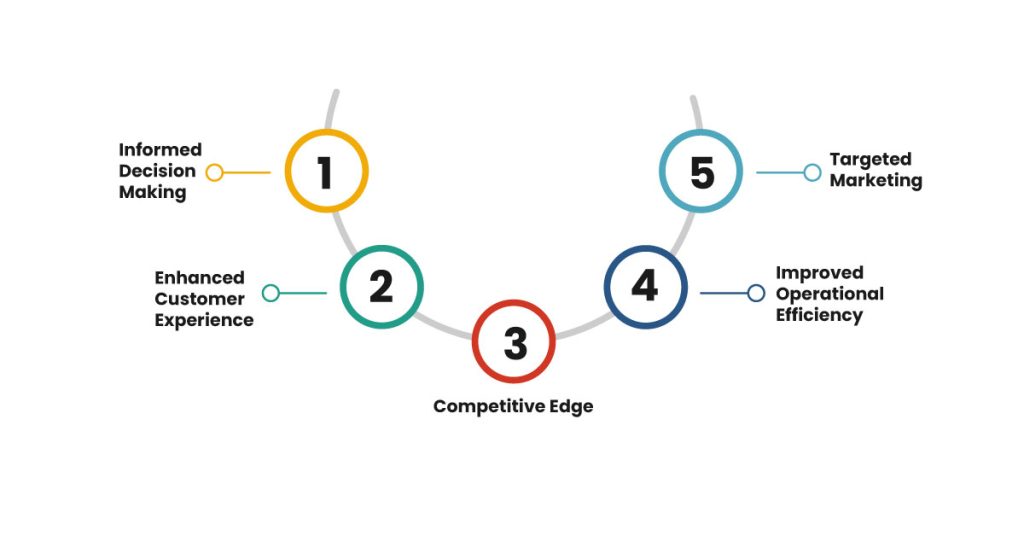
Big data is not an exclusive preserve of today’s large organizations competing in the super-competitive global economy. The following are the benefits of data analytics for small businesses:
1) Informed Decision-Making
Analytics is a key aspect of small business growth. It is significant for small businesses to derive information on customer behavior, current market, and operational performance from big data. For instance, a small retailer can use big data to predict yearly merchandise sales.
2) Enhanced Customer Experience
3) Competitive Edge
Manufacturers can implement advanced tools like cloud software to integrate diverse operations for effective analysis. These tools produce insightful data from the data. The data assists in such actions as the innovation of new products, sales projection, and price fixing.
4) Improved Operational Efficiency
Cost reduction is a key strategy that needs to be adopted for small businesses. Big data analytics can easily point out areas that require efficiency improvements. For instance, through evaluating supply chain information, a small business can identify too many delays and small constraints, meaning they can cut their expenses. A report done by McKinsey states that organizations that apply big data successfully can enhance their operating margins by up to 60%.
5) Targeted Marketing
Marketing is another important aspect that helps people reach the intended clients and ensure the best returns. The use of big data makes marketing among small businesses particular. Demographic and behavioral characteristics expose the nature of customers and the most suitable ways of marketing message communication. Marketing with data is 6 times more likely to be year-over-year profitable than companies that do not utilize data-driven marketing.
Ready to see how data analytics can benefit your business?
Key Areas Where Small Businesses Can Leverage Data Analytics
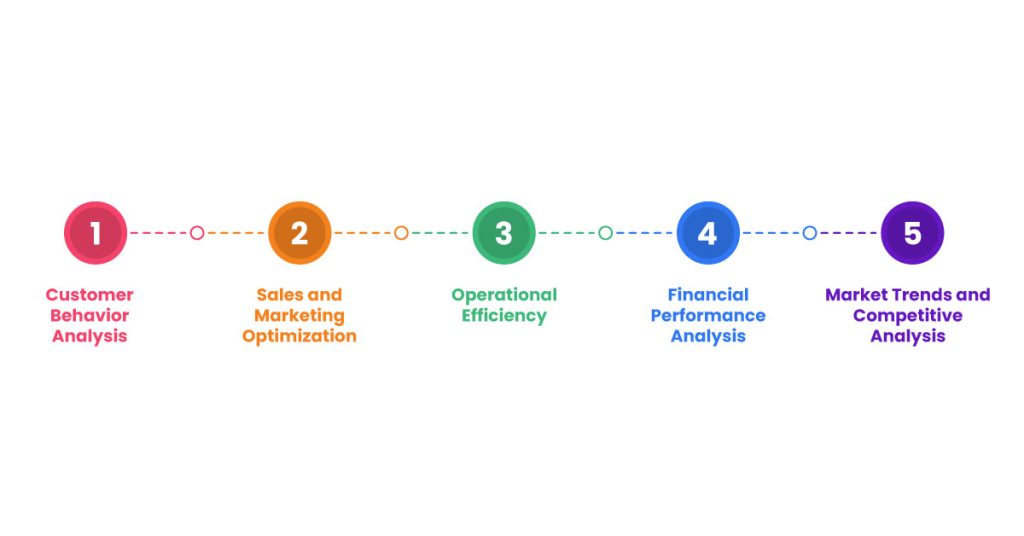
Business intelligence offers small businesses unique ways to attain a competitive advantage to optimize performance. Here are key areas where data analytics can make a significant impact:
1) Customer Behavior Analysis
Customer research is vital to understanding any small business’s customer behavior. Data analytics solutions for small businesses can help firms monitor purchasing trends, preferences, and feedback, which can help them get closer to clients with customized marketing. The employment of big data and Data-Driven Decision-Making can aid companies in enhancing the satisfaction and loyalty of their customers.
2) Sales and Marketing Optimization
Sales and marketing strategies remain critical to running a small business effectively. Data analytics companies for small businesses provide sales data analysis and discovery of the most successful products and marketing strategies. This enables management to employ its resources, reduce bounce rates, and acquire a higher conversion rate and high ROI.
3) Operational Efficiency
Cost-cutting and increasing production levels make an organization effective. A small business might need external data analytics consultants to evaluate its processes to realize its supply chain effectiveness. Data analytics solutions improve efficiency and the performance of existing operations while cutting operational costs.
4) Financial Performance Analysis
Analyzing financial data is essential to gaining insight into a business’s economic state. Data analytics helps track and predict cash flow and revenues and determine the probabilities of cutting expenses. Tools such as data visualization help map out financial information and assist in properly planning and directing funds.
5) Market Trends and Competitive Analysis
Market conditions are highly dynamic today, and small enterprises need to keep track of them. Data analytics can allow you to predict new market trends. This approach enables businesses to fine-tune their plans, discover new growth markets, and sustain a competitive edge.
Implementing Data Analytics in Small Businesses
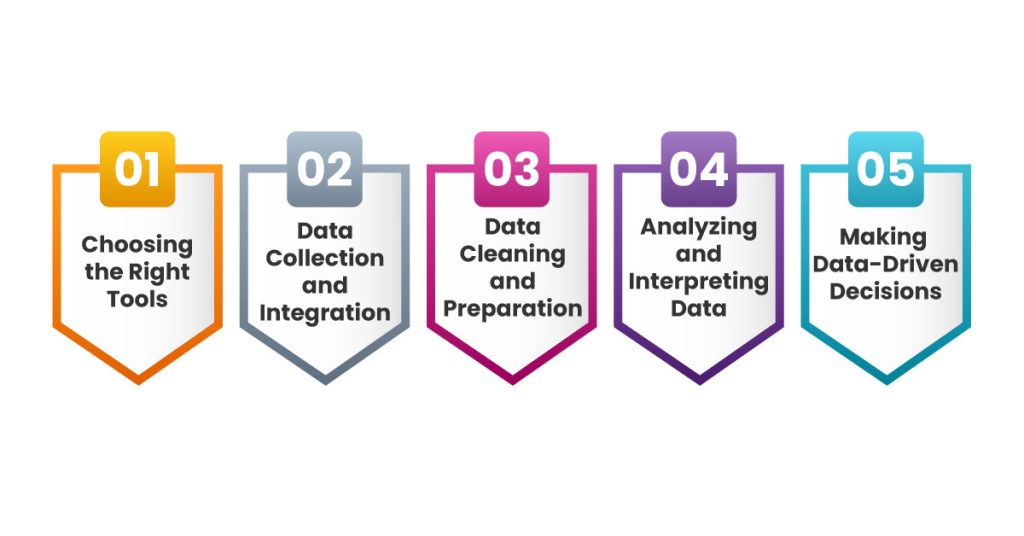
Data Analytics integrates into a small business because it improves business intelligence. It aids in decision-making for business growth and increased financial return on investment. Below is a procedure of the steps:
1) Choosing the Right Tools
It is essential to choose proper data analytics for small businesses. Google Analytics, Tableau, and QuickBooks are tools for monitoring customer behavior, market trends, and business performance. These tools assist small business owners in collecting relevant information on their operations or the market without spending a fortune.
2) Data Collection and Integration
The following tips will help you implement data analytics in your small business: A small business needs to obtain data from several sources, including sales data, customer feedback, and social media data. This information must be coordinated in a single server for effective analysis. This step serves as the basis for recognizing more patterns and trends in the system.
3) Data Cleaning and Preparation
Pre-process your data to make sure it is clean and habitually consistent. This involves eliminating redundancy, cleansing data, and formatting the data, among other things. Every business requires clean data that can be analyzed properly.
4) Analyzing and Interpreting Data
This involves using preferred data tools to construct hypotheses. Focus on activities such as customer behavior, sales figures, and the state of the “market”. For example, knowledge of the flow of product demand throughout the year is useful for better planning of supply and advertisement.
5) Making Data-Driven Decisions
The ultimate objective of business intelligence is the ability to make effective decisions using historical data analyses. Based on the considerations of your analysis, make relevant decisions about the marketing activities, using opportunities in operations management and product range.
Discover how data analytics can transform your small business
Data Analytics Challenges Faced by Small Businesses
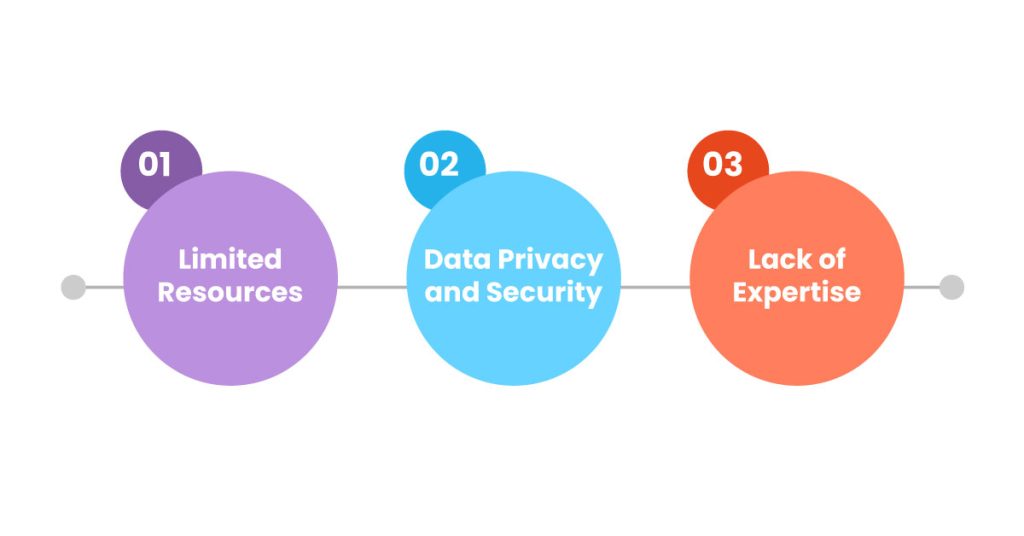
Data analytics in small businesses also face challenges. It affects their chances of using data to improve the business.
1) Limited Resources
Small businesses are always characterized by limited capital and human resources. Advanced data analysis techniques and tools that investors can employ can be costly financially. These constraints can be addressed by adopting a low-cost data analytics framework for small Websites and leveraging cloud solutions.
2) Data Privacy and Security
One should consider the issue of privacy and security while handling information related to customers. Some legal acts include GDPR and CCPA, which small businesses comply with, which is demanding in terms of time and effort. This research revealed that 29% of small companies have an issue with leakage of their client’s data, indicating a need to build a protection strategy to avoid legal repercussions and the consequent loss of clients’ credibility.
3) Lack of Expertise
A data analytic professional must have specific data gathering, analysis, and interpretation skills. The services of a professional data analytics consultant for small businesses can be useful as the need to create a small business data analytics plan that will fit the particular business comes up.
Best Practices in Data Analytics for Small Businesses
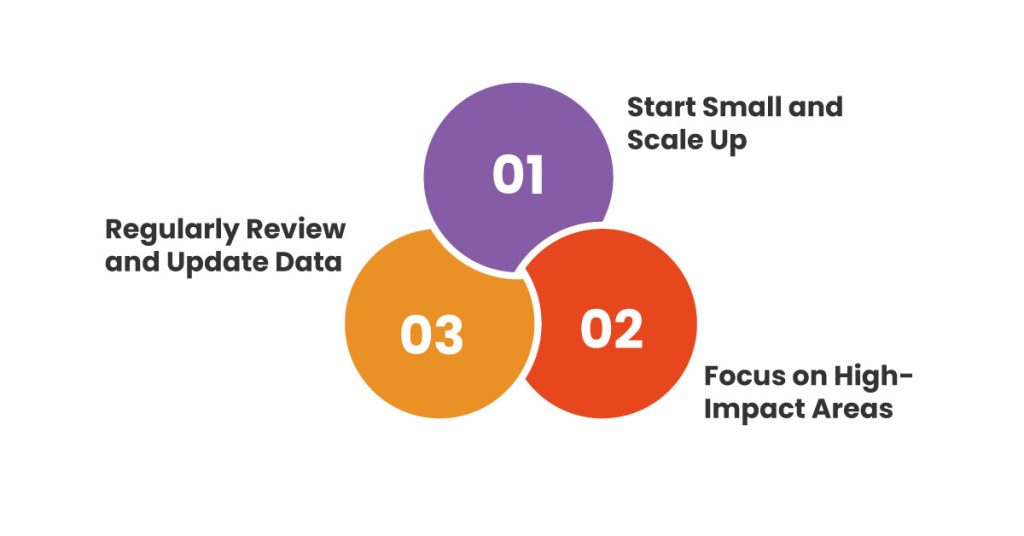
Adopting data analytics can revolutionize small businesses by offering insight into growth and optimization. Here are some best practices to maximize the benefits of data analytics:
1) Start Small and Scale Up
Select projects that are easy and feasible to begin with to convince management about the benefits of data analytics. Concentrate on important variables critical to your business and broaden as you gain more experience. Data analytics enables one to handle knowledge and course changes without wasting resources.
2) Focus on High-Impact Areas
Determine which aspects of the business could benefit from data analytics the most, including customer data analysis, sales analysis, and operations. The advantage of focusing on such areas is that you will achieve something tangible and worthwhile as they generate a lot of traffic.
3) Regularly Review and Update Data
Ensure the data is correct, contains all the required information, and is fresh. It is also necessary to ensure that the input data is kept clean through intermittent checks and data cleansing. This practice is essential to obtain valid and accurate information and avoid making research conclusions based on inadequate or expired data.
Conclusion
So, What is small business data analytics? One must understand this optimally. Data analytics is essential for small businesses to make the right decisions, increase customer satisfaction, differentiate themselves from competitors, and operate more effectively. Data analytics solutions and the ways that enhance them, described along with overcoming the challenges, help businesses use data to succeed. This blog has explained in the article why small businesses need data analytics and how it can alter the course of their performance. The incorporation of data analytics into your business model changes the way you run your business for better outcomes in the future.






